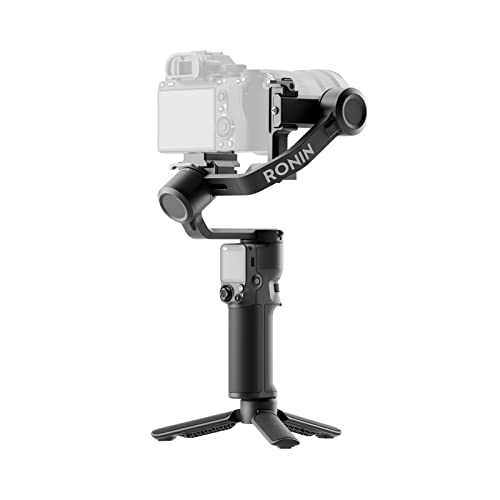




Security cameras have become an integral part of modern society, with their presence being felt in various public and private spaces. These cameras are used for surveillance and monitoring purposes, aiming to enhance security and deter criminal activities. However, the use of security cameras has sparked a debate on privacy concerns and ethical implications.
Proponents of security cameras argue that they are essential tools in preventing crime and maintaining public safety. They believe that the benefits of surveillance outweigh the potential invasion of privacy. On the other hand, opponents argue that the widespread use of security cameras infringes on individual liberties and creates a surveillance state.
As technology continues to advance, security cameras are becoming more sophisticated, raising questions about the extent of monitoring and data collection. The debate on whether security cameras should be banned is a complex one, balancing the need for security with the right to privacy.
Privacy concerns over surveillance cameras
Surveillance cameras raise significant privacy concerns as they constantly monitor public and private spaces, potentially infringing on individuals’ right to privacy.
1. Invasion of privacy
Security cameras can capture sensitive information about individuals without their consent, leading to concerns about invasion of privacy.
2. Data collection and storage
Surveillance cameras collect vast amounts of data, which can be stored indefinitely and potentially misused, raising questions about data security and privacy protection.
Impact on civil liberties
One of the main concerns surrounding the use of security cameras is the potential infringement on civil liberties. As cameras become more prevalent in public spaces, there is a growing fear that individuals’ right to privacy is being compromised. People may feel like they are constantly being watched and monitored, leading to a sense of unease and distrust.
Furthermore, there is a risk of misuse of surveillance footage, with the potential for data breaches or unauthorized access to sensitive information. This raises questions about who has access to the footage, how long it is stored, and what measures are in place to protect individuals’ privacy.
In addition, the presence of security cameras can lead to increased surveillance and monitoring of certain groups, potentially perpetuating stereotypes and biases. This can have a chilling effect on free speech and expression, as individuals may feel inhibited from expressing themselves openly for fear of being recorded.
Overall, the proliferation of security cameras raises important questions about the balance between security and privacy, and the potential impact on civil liberties in a society that is increasingly under surveillance.
Effectiveness in crime prevention
Security cameras have been proven to be effective in preventing crime. Studies have shown that the presence of security cameras can act as a deterrent to potential criminals, as they are less likely to commit crimes when they know they are being watched. In addition, security cameras can provide valuable evidence in criminal investigations, helping law enforcement agencies identify and apprehend suspects.
Furthermore, security cameras can help improve public safety by monitoring high-crime areas and alerting authorities to any suspicious activity. This proactive approach to crime prevention can help reduce the overall crime rate in a community and create a safer environment for residents and visitors.
Overall, security cameras play an important role in crime prevention and can be a valuable tool for law enforcement agencies in maintaining public safety.
Use of facial recognition technology
Facial recognition technology is a controversial aspect of security camera systems. While it can enhance security by identifying individuals and potential threats, it also raises serious privacy concerns.
Proponents argue that facial recognition technology can help law enforcement agencies track down criminals and improve public safety. However, critics raise concerns about the potential misuse of this technology, including mass surveillance, invasion of privacy, and discrimination.
Privacy concerns
The use of facial recognition technology raises significant privacy concerns as it allows for the tracking and identification of individuals without their consent. This can lead to the monitoring of individuals’ movements and activities, creating a potential surveillance state.
Accuracy and bias
Another issue with facial recognition technology is its accuracy and potential bias. Studies have shown that facial recognition algorithms can be less accurate when identifying individuals of certain races or genders, leading to discriminatory outcomes.
Surveillance Camera Regulations
In order to address concerns about invasion of privacy and misuse of surveillance cameras, it is essential to establish clear regulations governing their use. These regulations should outline the permissible locations for surveillance cameras, the purposes for which they can be used, and the retention period for recorded footage.
Permissible Locations
Surveillance cameras should only be installed in public spaces where there is a legitimate security concern. They should not be used in areas where individuals have a reasonable expectation of privacy, such as restrooms, changing rooms, or private residences.
Purposes of Use
Surveillance cameras should be used solely for security and crime prevention purposes. They should not be used for monitoring employees, conducting surveillance on individuals without reasonable suspicion, or infringing on civil liberties.
Retention Period: Recorded footage should be stored for a limited period of time, typically 30 days, unless there is a specific reason to retain it longer. This helps prevent the misuse of recorded footage and protects individuals’ privacy.
Public opinion on security cameras
Public opinion on security cameras is divided. Some people believe that security cameras are essential for public safety and crime prevention. They argue that cameras can deter criminal activity and provide valuable evidence in case of an incident. Others, however, are concerned about privacy issues and the potential for abuse of surveillance technology.
Pros of security cameras:
1. Increased public safety
2. Crime prevention and deterrence
3. Valuable evidence for law enforcement
Cons of security cameras:
1. Privacy concerns
2. Potential for misuse and abuse
3. Invasion of personal space
| Pros | Cons |
|---|---|
| Increased public safety | Privacy concerns |
| Crime prevention | Potential for misuse |
| Valuable evidence | Invasion of personal space |
Alternatives to traditional security cameras
While traditional security cameras have their benefits, there are also alternative options that can provide effective surveillance without some of the drawbacks. Some alternatives to consider include:
1. Smart home security systems: These systems offer a range of features such as motion detection, remote monitoring, and smartphone integration.
2. Video doorbells: These devices provide a camera at your front door, allowing you to see who is there and communicate with visitors through your smartphone.
3. Outdoor motion sensor lights: Installing motion-activated lights can deter intruders and alert you to any movement outside your property.
4. Neighborhood watch programs: Building a strong community network can enhance security through mutual vigilance and cooperation.
5. Privacy-friendly cameras: Some security cameras prioritize user privacy by offering features such as end-to-end encryption and local storage options.
Exploring these alternatives can help you find a security solution that meets your needs while addressing concerns about traditional security cameras.
Security Camera Misuse in Public Spaces
While security cameras are meant to enhance safety and provide surveillance in public spaces, there have been instances of their misuse.
Some common examples of security camera misuse in public spaces include:
| Issue | Description |
|---|---|
| Invasion of Privacy | Security cameras placed in areas where individuals have a reasonable expectation of privacy, such as restrooms or changing rooms. |
| Profiling and Discrimination | Using security cameras to target specific groups based on race, ethnicity, or other characteristics, leading to discrimination. |
Conclusion
While security cameras can be valuable tools for public safety, it is important to address and prevent their misuse in order to protect individual rights and promote a safe and inclusive environment in public spaces.
Cost-benefit analysis of security cameras
When considering the implementation of security cameras, it is important to conduct a cost-benefit analysis to determine whether the benefits outweigh the costs.
Costs:
1. Initial installation costs: Security cameras require an initial investment for purchasing and installing the equipment.
2. Maintenance costs: Regular maintenance and monitoring of security cameras can incur additional expenses.
3. Privacy concerns: The use of security cameras may raise privacy issues and potential legal challenges.
Benefits:
1. Crime prevention: Security cameras can deter criminal activities and improve overall security in an area.
2. Evidence collection: In the event of a crime, security camera footage can serve as valuable evidence for investigations.
3. Monitoring and surveillance: Security cameras enable real-time monitoring of activities, enhancing situational awareness.
By weighing the costs and benefits of security cameras, stakeholders can make informed decisions regarding their implementation and regulation.
Legal Implications of Security Camera Use
When it comes to security camera use, there are several legal implications that need to be considered. The following are key factors to keep in mind:
Data Privacy
Privacy laws: Security cameras must comply with privacy laws to ensure that individuals’ rights are respected. Unauthorized surveillance can lead to legal consequences.
Data protection: It is crucial to protect the data collected by security cameras to prevent breaches and ensure the confidentiality of personal information.
Consent and Notification
Consent: In some jurisdictions, individuals must provide consent before being recorded by security cameras. Failure to obtain consent can result in legal issues.
Notification: Posting signs or informing individuals about the presence of security cameras is often required by law to maintain transparency.






